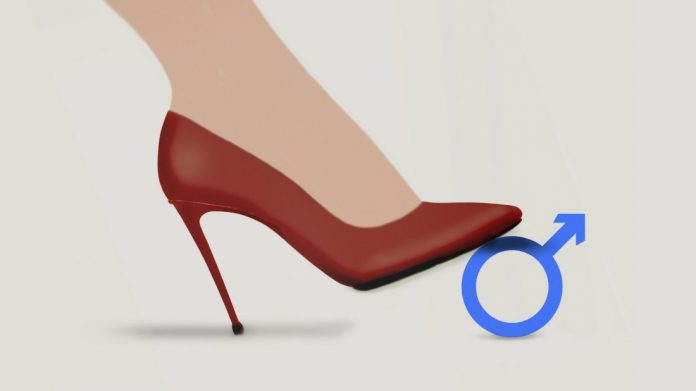It's interesting why women can use a red stiletto. In prime time, the Italian telecommunications company TIM shows how to shatter the walls of patriarchy with a pointed high-heeled shoe. No glass ceiling. In the commercial clip it's worse: the woman is trapped in a labyrinth. High walls prevent them from leaving a path that limits their personal and professional development. The camera follows their winding path for 40 seconds. Then she slips the stiletto off her heel and violently makes a breach in the stone.
At the climax, the metaphors are over. A mechanical voice from off says: Another 169 years are needed to achieve economic gender parity. The message follows: “Let's tear down the walls: equality cannot wait.”
Of course, one wonders whether the advertising film is intended to be a call for feminist revolt or whether the wokeness is a clever marketing maneuver. One thing is certain: In Italy, which is at the bottom of the list when it comes to the gender gap in Europe and has even been overtaken by Malta, Greece and Spain, the disadvantage of women in working life is becoming increasingly important. It is recognized as a main reason for the country's weak growth and birth crisis. Both are major concerns for the economy. Because without growth and without a demographic change, Italy threatens to sink into its national debt. TIM boss Pietro Labriola says: “Parity is a crucial prerequisite for growth.” The PR campaign should promote a cultural change that can no longer be postponed.
The company is putting in a lot of effort. Oscar director Giuseppe Tornatore made the film “Il labirinto”. The sentimental ballad “The Loneliest” by the internationally successful Roman rock band Måneskin accompanies the action. It was broadcast for the first time on all channels on New Year's Eve, directly before the Italian President's New Year's speech. The video was viewed six million times on YouTube in nine days. At the short message service X, the “Parity can’t wait” campaign quickly became a trending topic.
But now the progressive telecommunications company has no time to waste either. It is not a role model for gender equality. There are nine men and six women on the board of directors. This means that the group is already meeting legal requirements that will come into force in 2026: 40 percent of the positions in the top body must then be filled by women. Only one woman rose to the ranks of the 14 top managers with strategic responsibility. Overall, 76 percent of managers at TIM are men.
Meanwhile, a senator says becoming a mother is the “mission” of young women
But the great attention paid to the advertising film shows that it has hit the nerve of the times. In the fall, actress Paola Cortellesi achieved sensational success with her directorial debut “There's Another Tomorrow.” The film, which depicts an Italian woman's fight for her rights in black and white in 1946, was the box office hit in Italian cinemas in 2023. On November 25th, hundreds of thousands took to the streets against violence against women. “Femicide” was the – terrible – word of the year in Italy, i.e. the killing of women or girls as an extreme form of gender-based violence.
And the government? Under the leadership of Giorgia Meloni, she is working on cementing the traditional distribution of roles. In Italy only half of women are employed. In southern Italy, only one in three women has a job. In addition, 20 percent of women give up their careers when they have a child. Mostly because they can't find a daycare place or can't afford the care.
The EU has made 4.6 billion euros available to Italy to create 264,000 daycare places. Rome cut 150,000 places from the program. The opposition is calling for the introduction of five months of paid parental leave. Fathers can only stay with their child for ten days in Italy, the government coalition rejected the application. Just as TIM called for the overthrow of the patriarchy, Senator Lavinia Mennuni of Meloni's right-wing Fratelli d'Italia party said on television: “We have to get the 17- to 20-year-olds to bring children into the world who will be Italy's citizens tomorrow.” Becoming a mother must be the highest aspiration of young women. “Your mission,” Mennuni said.



